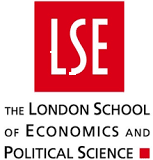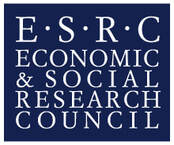Welcome!
Empirical studies of African political economy have been stuck at two extremes of the analytic spectrum -- either they take a highly macroscopic and aggregated view of whole countries, or they take a microscopic view of disaggregated households or even individuals. Scholars zoom-out to compare the Gross Domestic Product or the quality of democracy at the country-level, or they zoom-in on household incomes or voter behavior.
The Spatial Inequalities in African Political Economy research project is a four-year project funded by the UK Economic and Social Research Council. Breaking free from the old constraints, this project develops new theory, new data, and innovative empirical analysis to show that existing empirical studies have missed the level of analysis most appropriate for understanding patterns of cleavage and competition that drive electoral struggles, development policy disputes, and civil conflict within African countries: the sub-national, regional level.
Based at the LSE Government Department and hosted in part by the LSE International Inequalities Institute, the project brings together researchers across three continents, seven countries, and six academic disciplines to study the economic and political inequality in Africa. Our main tools and resources are statistical analysis, GIS mapping, field research, and the historical and qualitative literature on economic and political change in African countries.
Please watch this website for our publications and contact us for more information.
Empirical studies of African political economy have been stuck at two extremes of the analytic spectrum -- either they take a highly macroscopic and aggregated view of whole countries, or they take a microscopic view of disaggregated households or even individuals. Scholars zoom-out to compare the Gross Domestic Product or the quality of democracy at the country-level, or they zoom-in on household incomes or voter behavior.
The Spatial Inequalities in African Political Economy research project is a four-year project funded by the UK Economic and Social Research Council. Breaking free from the old constraints, this project develops new theory, new data, and innovative empirical analysis to show that existing empirical studies have missed the level of analysis most appropriate for understanding patterns of cleavage and competition that drive electoral struggles, development policy disputes, and civil conflict within African countries: the sub-national, regional level.
Based at the LSE Government Department and hosted in part by the LSE International Inequalities Institute, the project brings together researchers across three continents, seven countries, and six academic disciplines to study the economic and political inequality in Africa. Our main tools and resources are statistical analysis, GIS mapping, field research, and the historical and qualitative literature on economic and political change in African countries.
Please watch this website for our publications and contact us for more information.
|
|
|
|
|

